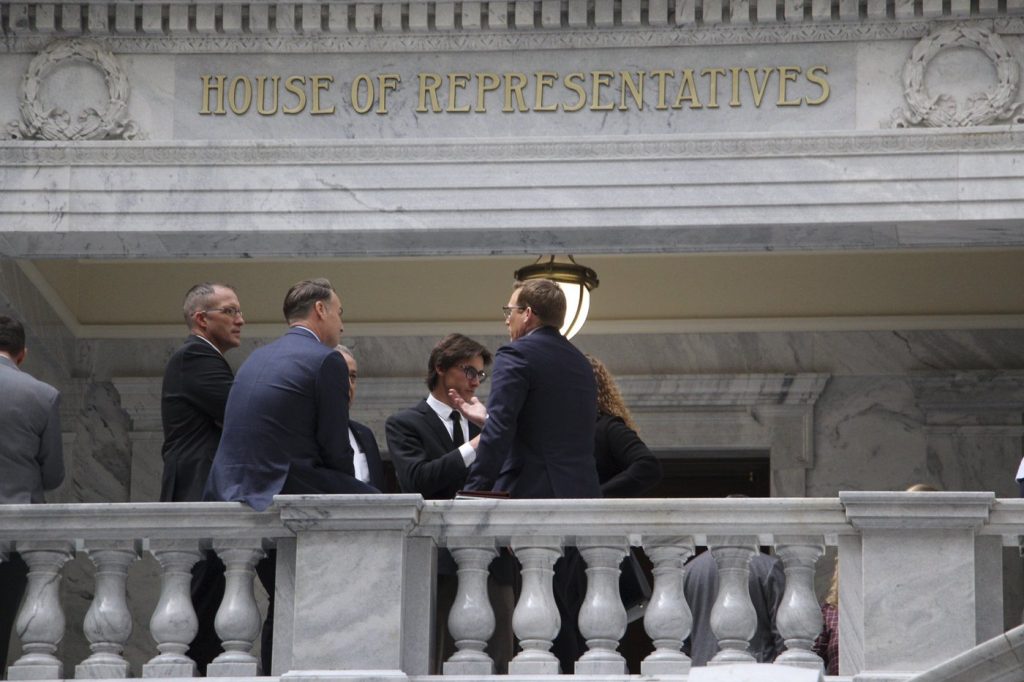SALT LAKE CITY (AP) — Utah lawmakers have taken significant steps towards enacting a controversial bill that is being described by experts as one of the most restrictive labor laws in the United States. This GOP-led initiative aims to dismantle collective bargaining across all public sectors in Utah, including education, transit, and law enforcement. Should this bill pass, labor unions would no longer have the authority to negotiate on behalf of workers for improved wages or working conditions.
Educators in the state, who are the primary users of collective bargaining, perceive this legislative move as a direct attempt by Republicans to weaken teachers' unions. Advocates for education argue that this bill effectively silences teachers' voices regarding their salaries, working conditions, and other beneficial policies that impact their classrooms. Sara Jones of the Utah Education Association cautioned that the legislation sends a message undermining educators' ability to have a collective voice in their profession.
Teachers' unions, known for their strong opposition to various Republican policies in Utah, have been particularly vocal against moves to eliminate diversity, equity, and inclusion programs, as well as legislation aimed at expanding school choice vouchers and imposing restrictions on transgender individuals in schools. The political composition of these unions tends to lean liberal, which Republican lawmakers argue makes them unsuitable representatives for teachers holding conservative viewpoints.
Republican Cole Kelley, a member of Utah’s State Board of Education, emphasized the necessity for various voices in the teaching profession beyond those aligned with the unions' political ideologies. State Rep. Jordan Teuscher, the bill's sponsor from South Jordan, defended the legislation by claiming that collective bargaining agreements often inhibit workers from participating in their own contract negotiations. He believes the proposed system would allow employers to engage directly with all employees regarding workplace concerns.
This bill has seen initial approval from the GOP-dominated House Business, Labor, and Commerce Committee, passing with a vote of 11-4 in favor, supported by several prominent Republican figures including House Speaker Mike Schultz. While state employees would still be permitted to join unions, the unions' capacity to negotiate on their behalf would effectively be eliminated.
Historically, President Donald Trump’s policies have sought to limit unionization efforts. However, his populist appeal yielded some success for Republicans in attracting union members during the 2024 election cycle, primarily from private-sector backgrounds. Labor expert John Logan pointed out that Republicans view teachers' unions as significant barriers to achieving their desired reforms in public education, indicating that while they seek to gain support from blue-collar workers, they find public sector unions to be ideologically incompatible with their goals.
Logan described Utah’s proposed legislation as "fairly extreme," categorizing it alongside states such as North Carolina and South Carolina, which have similarly stringent restrictions on public sector unions. In the Carolinas, collective bargaining has been banned for decades, leading to fluctuating union membership rates, currently placing South Carolina at the bottom with only 3% of workers unionized, according to the Bureau of Labor Statistics. Conversely, in Texas and Georgia, collective bargaining is limited exclusively to police and firefighters, a situation that would also not apply under Utah's proposed legislation, raising concerns among firefighters about their ability to advocate for workplace safety without union backing.










